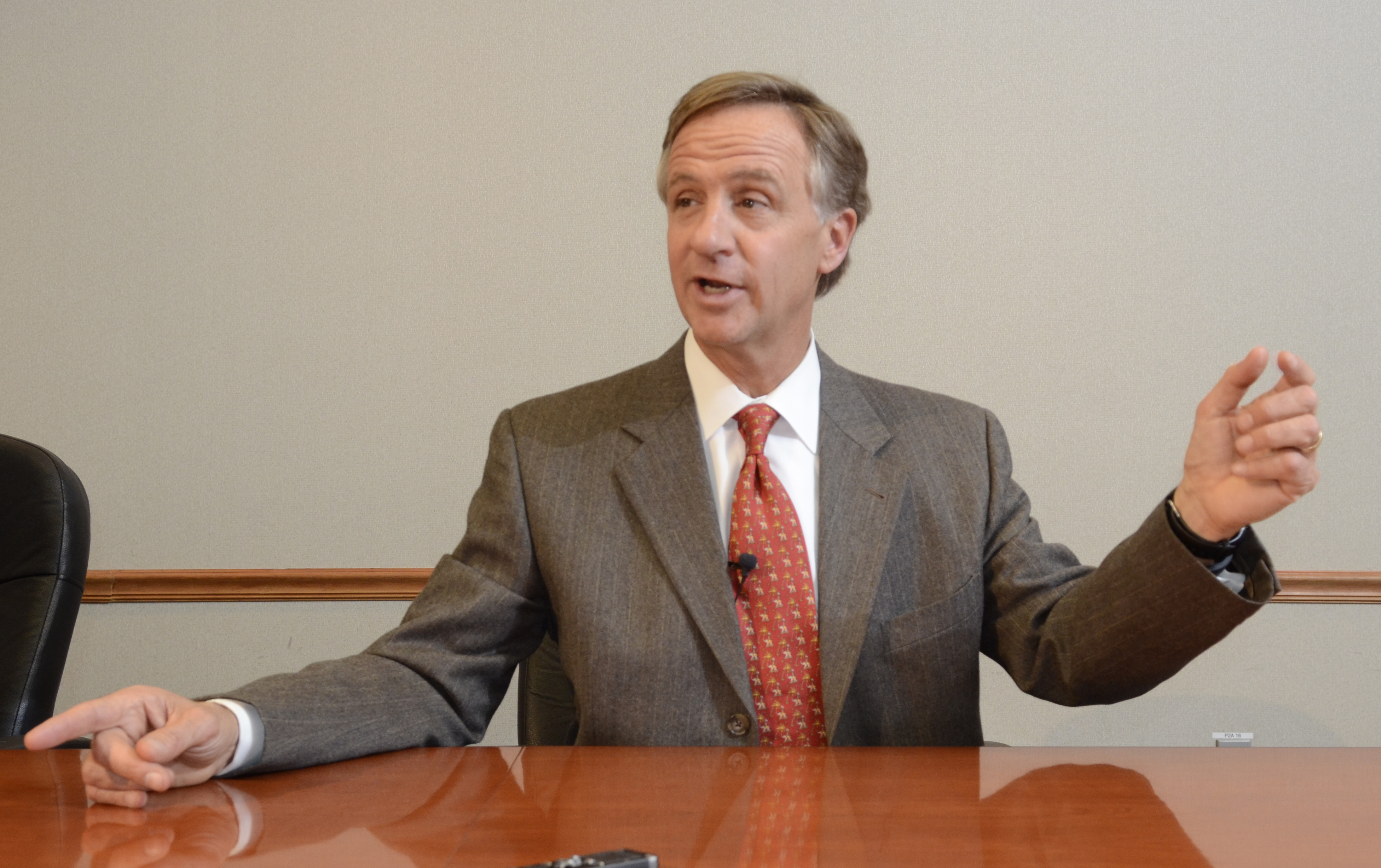BY THE NUMBERSProjected job and economic losses if Tennessee doesn't expand its Medicaid program:Nashville-Davidson County: 15,528 jobs, $2.43 billionShelby County: 15,157 jobs, $2.35 billionKnox County: 9,236 jobs, $1.35 billionHamilton County: 7,500 jobs, $1.1 billionSource: Tennessee Hospital Association
NASHVILLE - Cuts in federal Medicare payments to local hospitals would cost Hamilton County an estimated 7,500 jobs over the next decade and deal a $1.1 billion blow to the local economy, a hospital industry analysis shows.
Statewide, the impact would be 90,000 jobs and $13.3 billion in economic losses, according to the analysis by the Tennessee Hospital Association.
Hospitals are citing the figures as they step up pressure on Republican Gov. Bill Haslam and the GOP-led Legislature to expand TennCare, the state's Medicaid program, under the federal Affordable Care Act.
"Tennessee's hospitals are entering a serious fiscal crisis, the likes of which we have never seen in our history," THA President Craig Becker said last week at a forum sponsored by The Associated Press and Tennessee Press Association.
He said state hospitals "really are concerned this is going to have almost a recessionary effect," noting it could drive unemployment up to levels not seen since the recession's peak in 2009.
Haslam is exploring whether the expansion makes sense for Tennessee and has urged lawmakers to keep open minds as he weighs the impact. He is looking at state costs, the benefit to an estimated 181,000 low-income Tennesseans who would enroll in TennCare, what flexibility the state could have to control costs and the impact to hospitals in a state that is home to some of the nation's largest hospital chains.
"I have said all along we want to have the discussion," Haslam told reporters last week.
Striking a balance
As President Barack Obama was working to pass his health care reform, he worked out a deal with the national hospital industry.
The industry agreed to cuts in reimbursements for Medicare, the insurance program for senior citizens. Tennessee projects a loss of $5.6 billion over 10 years.
The industry expected to make up for that loss by the Medicaid expansion, which would insure many more low-income people. But the U.S. Supreme Court made the expansion voluntary for states instead of mandatory, and many Republicans in Tennessee and elsewhere are balking.
Some Tennessee lawmakers are skeptical about the hospital industry figures. Senate Speaker Ron Ramsey, R-Bountville, told reporters last month that hospital figures can be fuzzy.
"Hospital math has always puzzled me," Ramsey said. "They can lose money five years in a row and still be in business. If my auction business lost money five years in a row, I would not be in business."
He also worries that the federal government in the future would cut back its financial commitment to the expansion because of the federal debt.
Still, Ramsey moved last week to sideline for now a bill by Sen. Brian Kelsey, R-Germantown, that would bar the state from expanding Medicaid.
Attorney Gordon Bonnyman of the Tennessee Justice Center, which advocates for broader health coverage, has quarreled with the hospital industry for years on any number of issues.
"I would be the first to say they have been known to cry wolf" about their finances, Bonnyman said. "The wolf is at the door now. I say that as an amiable adversary of the hospital association."
The federal government promised to pay 100 percent of the expansion cost for the first three years and 90 percent thereafter. TennCare Bureau officials project that in the fifth year, Tennessee's cost would be $100 million.
Besides the 181,000 enrollees from expansion, TennCare expects 60,000 people who are eligible but not now enrolled to sign up when the mandate requiring almost everyone to have insurance takes effect next year.
The state projects those people will up TennCare's cost by $200 million in fiscal 2019.
Broad impacts
Becker's group used a mathematical input-output analysis developed by a Noble Prize-winning economist to gauge the effect of Medicare cuts.
It uses economic and transaction data collected from various sources and seeks to predict direct and indirect impacts as well as changes in household spending based on income.
Explaining the predicted $1.1 billion loss in Hamilton County and $13.3 billion impact statewide, Becker said hospitals are among "the largest employers in their counties and a very large economic engine."
"For our state to absorb cuts of this size and scope, without using every possible means to offset the cuts [through Medicaid expansion], will create a ripple effect, the likes of which Tennessee communities have never seen before."
That's especially so in rural areas, he said.
During last week's forum, Kelsey was undeterred.
"My job is not to bail out the special-interest hospital lobby," he said. "My job is to represent Tennessee taxpayers. I represent Tennessee taxpayers. I do not represent Tennessee hospitals."
Last week, the Nashville Area Chamber of Commerce said it supports Medicaid expansion for its positive impact on job creation and consumer spending.
Officials cited a University of Memphis study that estimated the health care law would create 20,000 new jobs in Tennessee by 2019. Also, it would prevent people below the federal poverty line from rushing into the health exchanges and driving up premiums, a Chamber official said.
Chattanooga Area Chamber of Commerce spokesman J.Ed. Marston did not return a phone call Friday seeking comment.
Bradley Jackson, spokesman for the Tennessee Chamber of Commerce and Industry, said the group is "considering it very deeply."
"Tennessee has a huge health care economy," Jackson said, citing the major companies in and around Nashville. "I think a lot of people are looking at what Tennessee does."

